About McLean Lincoln Residence
Welcome to McLean Lincoln Residence, a leading provider of alcohol and drug addiction treatment in Massachusetts. Our evidence-based treatment programs are designed to help our clients achieve lasting sobriety. We offer a variety of services, including inpatient and outpatient rehab, sober living homes, and cognitive behavioral therapy. We also offer family therapy, group therapy, and individual therapy. Our experienced and compassionate staff is here to support you every step of the way. Contact us today to learn more about our services and how we can help you or your loved one recover from addiction.
Addiction Treatment Programs
Alcohol Rehab
If you’re looking to break free of dependence on alcohol, a high-quality alcohol rehab in Massachusetts can help. Common services include counseling and classes on coping skills, emotional management, communication, and other key life skills. Alcohol rehab programs can provide inpatient or outpatient treatment.
Dual Diagnosis
During dual diagnosis treatment in Massachusetts, you’ll receive integrated care for your mental health and substance use concerns, helping you establish long-term recovery. Dual diagnosis programs may offer detox, inpatient treatment, and/or outpatient care. The key is that they provide integrated treatment for both mental health symptoms and substance use.
Opioid Addiction
A high-quality rehab in Massachusetts helps people gain the skills they need to overcome opioid addiction and maintain long-term sobriety. Drug rehab may include detox, inpatient treatment, and/or outpatient care. You’ll learn the roots of addiction and learn how to build a substance-free life.
Adult Program
When people join an adult program in Massachusetts, they learn about topics such as employment and raising a family while receiving treatment. Some of the common services will include counseling and classes on coping skills, emotional management, communication, and other key life skills. Adult programs can provide inpatient or outpatient treatment.
Men's Rehab
Men’s rehabs in Massachusetts address a wide range of substance use issues while also helping clients with gender-specific issues. Some of the common services they include are counseling and classes on coping skills, emotional management, communication, and other key life skills. Men’s programs can provide inpatient or outpatient treatment.
Women's Rehab
A women’s rehab in Massachusetts helps clients build same-gender friendships, overcome substance use, and learn new life skills. Some common services include counseling and classes on coping skills, emotional management, communication, parenting, and other key life skills. Women’s programs can provide inpatient or outpatient treatment.
Young Adult Rehab
Young adult rehab programs in Massachusetts can help young people make healthier life choices and avoid common mistakes. Some of the common services will include counseling and classes on coping skills, emotional management, communication, and other key life skills. Young adult programs can provide inpatient or outpatient treatment.
Insurance Coverage
Self-pay options
In Massachusetts, you can use self-pay, also known as private pay, to cover the costs of rehab. Payment structure may vary depending on the level of care, but you can use a medical loan, write a check, or send money electronically.
Private insurance
Paying for rehab in Massachusetts can be done in multiple ways, including using private insurance. Because plans vary, be sure to contact the insurer to find out what centers are in-network with your coverage and to find out what out-of-pocket costs you might be responsible for.
Military insurance
For those with military insurance, using your coverage to pay for treatment in Massachusetts can make rehab more accessible. Your insurance plan can pay for some or all of the costs of rehab, especially if you choose a center that’s in the plan’s network. Be sure to check with the insurer to get full details.
Medicaid
If you qualify in Massachusetts, Medicaid is one of your options when it comes to paying for rehab. Medicaid covers multiple levels of care, and you may have no out-of-pocket costs. However, you’ll need to choose a treatment center that accepts Medicaid.
Medicare
Medicare is a good way to pay for substance use treatment in Massachusetts. Medicare plans may vary, so be sure to find out coverage details and what copayments or deductibles you might be responsible for.
Sliding scale payment assistance
How do you pay for rehab in Massachusetts? A good option is to look for programs with a sliding scale payment plan. Whether you need detox, inpatient treatment, or outpatient care, you can qualify for a lower cost based on your income and family size.
Levels of Care
- 1
Inpatient Rehab
If you struggle with addiction in Massachusetts, inpatient care is one option for rehab. You’ll live full-time at the facility and focus fully on recovery. Inpatient treatment includes multiple approaches, including cognitive behavioral therapy (CBT), motivational interviewing (MI), and holistic therapy options.
- 2
Outpatient Rehab
During outpatient treatment in Massachusetts, each client attends multiple hours of care per week while living independently outside of treatment. Outpatient treatment is commonly a follow-up to residential treatment and may be used to help with skill-building, education, and to practice your new habits in daily life.
- 3
Aftercare Support
Accessing aftercare in Massachusetts is a way to reduce the risk of relapse, helping you establish long-term recovery. It’s common for a treatment program to offer aftercare support, which may include employment training, help with housing, alumni support groups, and more.
- 4
Sober Living Homes
Sober living in Massachusetts helps clients maintain long-term recovery by providing essential support after treatment ends. Some sober living programs are simply houses to live in and build your own life, while others include employment training, job assistance, life-skills classes, and more.
Therapies
Cognitive Behavior Therapy
Not everything we think is true or helpful. Cognitive behavioral therapy in Massachusetts teaches you to challenge distorted thinking so you can see things more clearly and choose healthier responses. CBT is a common part of both inpatient and outpatient substance use treatment and may be used to help with skill-building, overcoming problematic behavior, and managing substance use triggers.
Dialectical Behavior Therapy
People want to improve their situation but don’t always know how. Dialectical behavioral therapy in Massachusetts teaches you healthy coping mechanisms and improves your confidence so you can build a better life. DBT is a common part of both inpatient and outpatient substance use treatment and may be used to help with skill-building, overcoming problematic behavior, and managing substance use triggers.
Experiential Therapy
In Massachusetts, experiential therapy helps you express your emotions in non-traditional ways. This makes it much easier to reach long-term recovery. Experiential therapy involves a variety of activities that can make it easier to process trauma and emotions and allow you to break through some of the root issues that hold you back from recovery.
Family Therapy
During family therapy in Massachusetts, clients and their loved ones can address dysfunctional relationships, resentments, and conflicts in order to create healthier relationships that support the client’s recovery. Family therapy sessions generally last 60 to 90 minutes and may include discussing marital issues, codependency, grief, domestic violence, trauma, and other topics that impact families. The goal is to create healthier relationships that can support recovery.
Group Therapy
During group therapy in Massachusetts, each client has a chance to share their unique experiences and feelings about the discussion topic. This creates accountability and support. Group therapy is a common part of both inpatient and outpatient substance use treatment, and may be used to help with skill-building, processing, and to present educational information.
Individual Therapy
You’re not alone as you work through addiction in Massachusetts. Individual therapy gives you a professional who’s on your side to help you build a new life. Individual focuses on improving both behavioral and emotional health. You may explore thought processes, develop motivation to change, and/or explore past events that may have played a part in your substance use.
Accreditations
Location
Contact McLean Lincoln Residence
Top Drug Rehab Centers in Massachusetts
-
 Massachusetts
MassachusettsSSTAR Stanley Street
386 Stanley Street Fall River, Massachusetts 02720
-
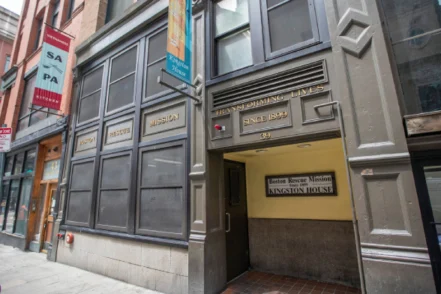 Massachusetts
MassachusettsBoston Rescue Mission Outpatient Counseling
39 Kingston Street Boston, Massachusetts 02111
-
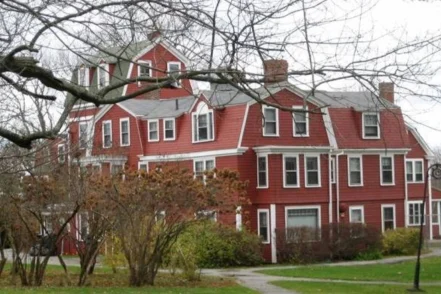 Massachusetts
MassachusettsBaldpate Hospital
83 Baldpate Road G Georgetown, Massachusetts 01833
-
 Massachusetts
MassachusettsTopsail Addiction Treatment
140 Haverhill Street, Suite 8 Andover, Massachusetts 01810
-
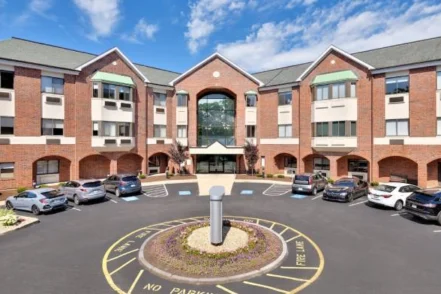 Massachusetts
MassachusettsBedrock Recovery Center
1 Meadowbrook Way Canton, Massachusetts 02021
-
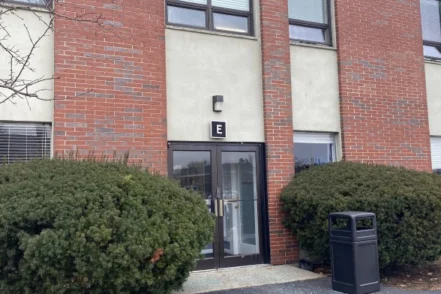 Massachusetts
MassachusettsAftermath Addiction Treatment Center
607 North Ave , Suite 11 E Wakefield, Massachusetts 01880
-
 Massachusetts
MassachusettsAvenues Recovery Center at New England
81 Hall Street Concord, Massachusetts 03301
-
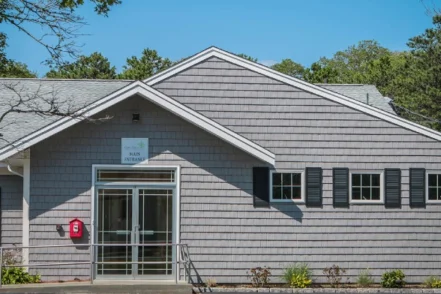 Massachusetts
MassachusettsRecovering Champions
279 Brick Kiln Road Falmouth, Massachusetts 02536
-
 Massachusetts
MassachusettsNew Horizons Medical
1180 Beacon Street, Suite 3C Brookline, Massachusetts 02446
-
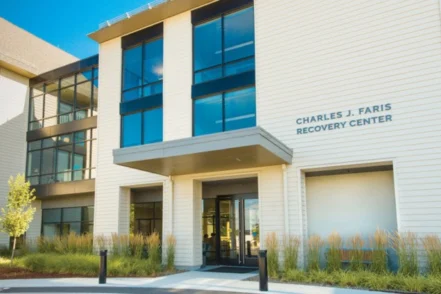 Massachusetts
MassachusettsNew England Recovery Center
153 Oak Street Westborough, Massachusetts 1581
-
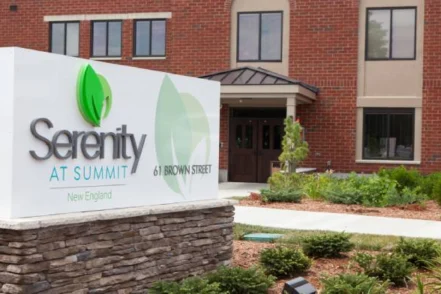 Massachusetts
MassachusettsSerenity at Summit New England
61 Brown Street Haverhill, Massachusetts 01830
